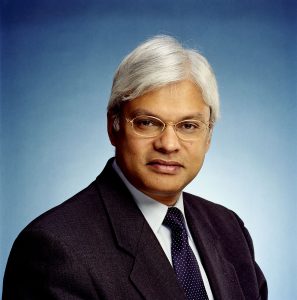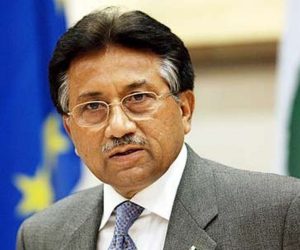Washington, October 1 (NIA): Pakistan is unlikely to militarily respond to the Indian “Surgical Strike” across the Line of Control in Kashmir but the larger sub-conventional war against India using militants will continue, says Ashley Tellis of the Carnegie Endowment for International Peace, a top American think-tank said.
“I think Pakistan has its hands full right now, it is unlikely to respond to the Indian action militarily, but the larger sub-conventional war against India will continue,” Tellis told PTI.
The Indian diplomatic moves and the limited military strike will likely keep Islamabad on its toes, though when employing new tools in such a struggle, clear messaging is key so both sides know the others’ intentions as will prevent unanticipated escalation, said Rick Rossow of the Center for Strategic and International Studies (CSIS) said.

Rossow recalled that the hint of such surgical strikes was given last year, when the Indian Army initiated an attack against terrorists in Myanmar.
The Indian Army’s surgical strike inside Pakistan-Occupied Kashmir (PoK) against terrorists planning to infiltrate into India for terror activities was “carefully measured”, Tellis said.
“The Indian action was carefully measured: striking at terrorist launch pads was meant to signal that India has not lost its freedom to retaliate, but puts the onus of further escalation on Pakistan,” Tellis added.
Asked if the US will intervene diplomatically, Tellis said the US will counsel restraint, but unless the administration is willing to turn the screws on Pakistan — which is unlikely — India will be guided by its own interests, not American pleas for forbearance.
“I think Pakistan has its hands full right now, it is unlikely to respond to the Indian action militarily, but the larger sub-conventional war against India will continue,” Tellis said.
According to Rossow, India has also shown other new tools in its confrontation with Pakistan, such as withdrawing from the upcoming SAARC summit, building stronger ties with other South Asian nations, and using closer security ties with the US as a hook to press for reduced military cooperation with Pakistan.
Rossow said while the Ministry of Defense has stated it does not plan additional strikes, it is not clear whether the current tensions between India and Pakistan will escalate further.
“There is certainly little expectation that Pakistani militants, under varying degrees of control by Pakistan’s military, will be deterred from initiating further attacks. But the costs to Islamabad of supporting terrorism are increasing, and taking different forms than before,” Rossow said.
Jonah Blank, from the RAND Corporation think tank said that after the Mumbai 2008 attacks, India’s patience had reached its limit.

“Pathankot was the breaking point. It was probably unrealistic to expect that the Uri attack would fail to bring a military response,”he said.
“The phone call between Ajit Doval and Susan Rice accomplished two important things: First, it enlisted the US to help prevent a Pakistani counter-strike. Second, it avoided jeopardizing the India-US relationship by having Washington find out about the attack from Islamabad or the media, he noted.
“There was never much likelihood that the US would condemn the attack. After an American surgical strike against Osama bin Laden in Abbottabad, any criticism of India for a cross-border action would have seemed hypocritical,” Blank said.
“The outcome, limited Indian strike, limited Pakistani response, was probably as good as could have been desired. A stronger Indian strike, or a Pakistani escalation into full warfare, would not have served either nation’s interest,” he said.

Musharraf Wants Pakistan To Pose Counter Threat
Former Pakistan President General Pervez Musharraf on Saturday said that Pakistan should “counter threat” India, while calling on India to stop escalating tensions.
“India is threatening to strike us at their time which is a serious matter,” Musharraf said to a question on the current bilateral tensions between Pakistan and India, at the Washington Ideas Forum.
The former military ruler claimed that it was India and not Pakistan, that was building up the “war hysteria” and advised the Indian leadership to refrain from taking matters to the point of no return.
In a session moderated by host Robert Siegel, he also spoke on the “deteriorating” relations between Pakistan and the US and that the relationship has to be mended for the sake of peace in South Asia and also Afghanistan.

























































